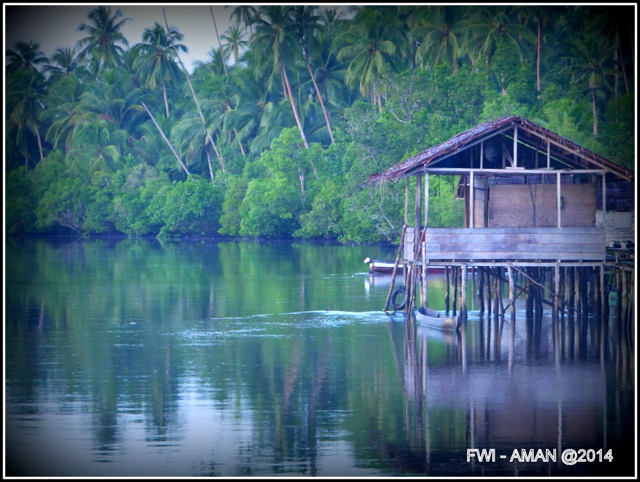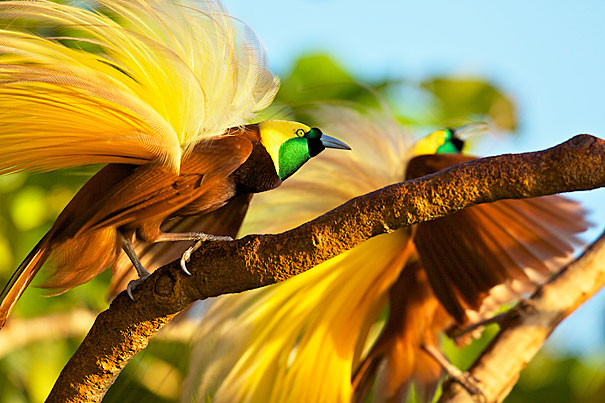
A body of water in Aru, a cluster of about 90 islands in eastern Indonesia. Photo: FWI-AMAN
The Indonesian agriculture minister’s recent comments that the Aru archipelago in the country’s eastern waters will be one of three sites for a major new sugarcane initiative has sparked an outcry among civil society groups.
Just last year, Aru, a cluster of around 90 islands in Indonesia’s Maluku province, caught the national spotlight when Malaysia-based Menara Group acquired rights to three quarters of its 629,000 hectares as part of a massive plantation venture. Following a public outcry fueled by the “Save Aru” Twitter campaign, then-Forestry Minister Zulkifli Hasan announced in April 2014 that he would not sign off on the company’s plans.
Now, however, activists are wondering if those plans have been revived. According to the Jakarta Post, Agriculture Minister Amran Sulaiman said last week that the government intended to harness foreign investment to establish at least 10 sugar factories and sugarcane plantations in Aru, Merauke in Papua, and Southeast Sulawesi.
“We are planning to allocate 500,000 hectares of land in the three regions, calculating that one mill with a plantation will need at least 50,000 ha of land,” said Amran, who added that Environment and Forestry Ministry Siti Nurbaya had “agreed that the land in the three regions would be able to support the industry,” according to the Post.

A bird of paradise perches on a branch in Aru. Photo: Tim Laman

Aru Islands. Courtesy of Global Forest Watch.
Jacky Manuputty, one of the organizers of the Save Aru movement, characterized the plan as arrognat and callous toward the indigenous Aru residents who had rejected the original sugarcane plan.
“The indigenous people of Aru feel cheated by the government,” he said. “This will lead to social unrest in Aru Islands.”
Mufti Barri, campaigner from Forest Watch Indonesia (FWI), an NGO, said the plan showed the government’s indifference to the preservation of natural forest.
“This threatens the lives of around 84,000 people,” said Mufti, adding that he suspected the plan was more about harvesting Aru’s valuable timber than planting sugarcane.
Abdon Nababan, secretary general of the Alliance of Indigenous Peoples of the Archipelago (AMAN), said the forestry minister had already promised not to release any forest area on Aru for large-scale exploitation.
Produced in English by Philip Jacobson.
Citations:
- Sapariah Saturi. “Sudah Batal, Mentan Mau Hidupkan Lagi Kebun Tebu di Aru?” Mongabay-Indonesia. 23 June 2015.













